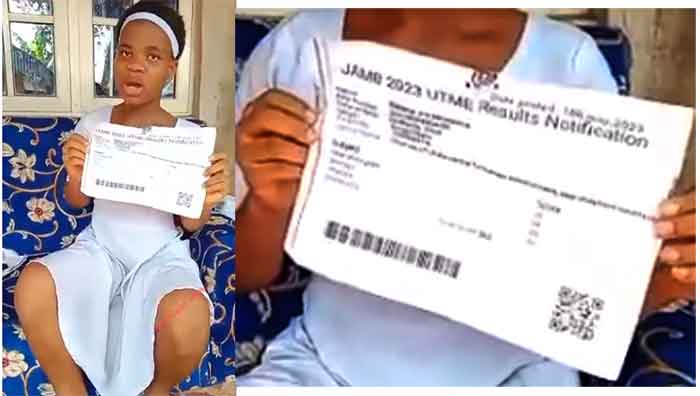
The case of Ejikeme Mmesoma, a 19-year-old student of Anglican Girls’ Secondary School in Uruagu Nnewi, Anambra State, has shed light on the issue of result falsification and exam malpractice.
While the controversy surrounding her 2023 Unified Tertiary Matriculation Examination (UTME) continues to be a source of discussion, it is essential to use this incident to educate children about the dangers of engaging in such activities.
Exam malpractice undermines the integrity of the education system and hinders personal growth and development.
Here are five ways to educate your child on the dangers of result falsification and exam malpractice:
1. Instill Right Values
It is essential to instill in children the value of honesty and integrity from an early age. Teach them that success should be earned through hard work, dedication, and merit rather than cheating or manipulating results. Mmesoma’s case serves as a warning, as her credibility and achievements were questioned due to the allegations of result falsification.
2. Teach Consequences Of Wrong Doing
Teach your child about the severe consequences that result in falsification and exam malpractice can have on their academic and personal lives.
Discuss how such actions can lead to loss of trust and credibility, disciplinary actions, academic penalties, and even legal consequences.
Highlight that she faced an investigative committee that eventually indicted her and required her to apologise publicly, tarnishing her reputation and potentially affecting her prospects.
3. Emphasise Personal Growth and Learning
Encourage your child to focus on personal growth and the joy of learning rather than solely on grades and rankings. Teach them that education is about passing exams and acquiring knowledge, skills, and character development. Share Mmesoma’s story to exemplify how cheating can undermine genuine academic progress and rob individuals of the opportunity to develop their potential truly.
4. Help Them Understand The Place Of Hard Work And Rewards
Help them understand that they can achieve their goals through hard work, perseverance, and seeking help.
Mmesoma’s case revealed the financial constraints faced by her family. Still, she was awarded a scholarship by Innoson Motors Nigeria, demonstrating that opportunities exist for those who work hard and display genuine academic excellence.
5. Teach Your Child Tor Prioritise Ethical Behaviour
Teach your child to prioritise ethical behaviour and the importance of doing the right thing, even when faced with challenging situations.
Encourage them to resist peer pressure and the temptation to engage in dishonest practices.
Her case can serve as a reminder that sticking to ethical principles is not only morally correct but also helps to maintain one’s credibility and self-respect.
6. Provide Emotional Support
Recognise the emotional toll that academic pressure can have on children and be available to provide emotional support when needed.
Encourage open discussions about stress, anxiety, and coping mechanisms.
Teach your child healthy stress management techniques and help them develop a resilient mindset that allows them to bounce back from setbacks and persevere in the face of challenges.
7. Communicate With Your Child Always
Maintain open communication with your child, ensuring they feel comfortable expressing their feelings, concerns, and aspirations.
Engage in regular conversations about their academic journey, expectations, and goals.
Also Read: How To Help Your Child Prepare For An Exam
By fostering a supportive and understanding environment, parents can help their children navigate the challenges they may face and alleviate unnecessary stress.
The case of Ejikeme Mmesoma highlights the need for parents and teachers to educate children about the dangers of result falsification and exam malpractice.
Let us learn from Mmesoma’s story and work together to create a generation of responsible, ethical, and principled individuals who will contribute positively to society.
Find more resources on parenting here.



